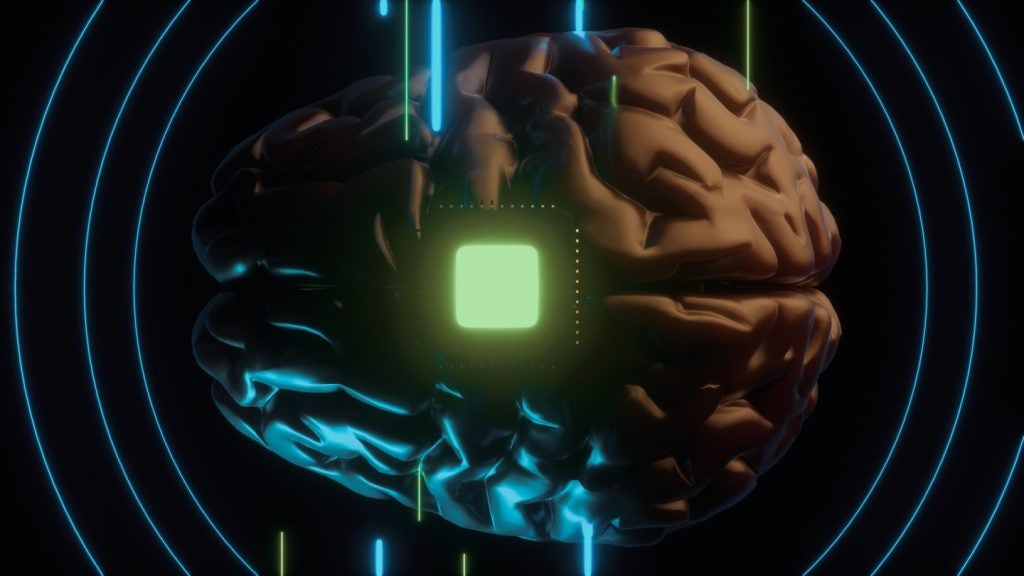
China is winning the AI race due to the US army’s sluggish digital transformation, private actors’ reluctance to work with the state and too many ethical debates stifling innovation, according to the Pentagon’s former software officer. Market analysts back his diagnosis.
“The guy’s right,” Michael Orme, senior analyst at GlobalData and a China specialist, tells Verdict, suggesting that Beijing has leveraged its wealth of data and the surveillance state to gain AI supremacy.
Nicolas Chaillan left the his role as the United States Air Force’s first chief software officer in October in protest to the US military’s lethargic digital transformation. He had spent three years working on the Pentagon’s cybersecurity efforts.
Chaillan is currently listed as the founder and CTO at cybersecurity startup Prevent Breach, which peddles its wares to both federal agencies and commercial organisations, according to his LinkedIn profile.
“We have no competing fighting chance against China in 15 to 20 years. Right now, it’s already a done deal; it is already over in my opinion,” Chaillan told the Financial Times in his first interview after his departure from the Pentagon, adding there was “good reason to be angry”.
Chaillan argued that Beijing is already set to dominate the world in terms of controlling everything from media narratives to geopolitics, adding that some US government departments’ digital defences were at “kindergarten level”.
How well do you really know your competitors?
Access the most comprehensive Company Profiles on the market, powered by GlobalData. Save hours of research. Gain competitive edge.

Thank you!
Your download email will arrive shortly
Not ready to buy yet? Download a free sample
We are confident about the unique quality of our Company Profiles. However, we want you to make the most beneficial decision for your business, so we offer a free sample that you can download by submitting the below form
By GlobalDataChaillan also blamed private actors like Google for the US’ disadvantage against China, saying the company had been reluctant to collaborate with the US defence department on AI.
By contrast, the cybersecurity founder suggested that China’s digital defences aren’t burdened by the same distance between private actors and the government or extensive debates about the ethics of AI.
Chaillan plans to testify before Congress in the coming weeks on the threat of Beijing overtaking the US.
While the FT story suggested that the US has already lost the AI fight to China, Chaillan later clarified on LinkedIn that he didn’t believe this was the case, but that the window for the States to act is rapidly closing.
“I never said we lost,” Chaillan said. “I said as it stands and if we don’t wake up NOW we have no fighting chance to win against China in 15 years. I also said that they’re leading in AI and Cyber NOW. Not in 10 years as some BS reports mention.”
He added: “Those are just common sense [facts]. We are competing against [1.5 billion] folks here. Either we are smarter and more agile or we lose. Period.”
“The guy is right” on China leading in AI
Explosive as Chaillan’s comments may seem, analysts have been quick to agree following the publication of the interview.
“Xi [Jinping] and the party’s top brass had a Sputnik moment in March 2016 when Google’s AlphaGo beat the world Go champion,” says Orme, who will host a seminar on the Chinese market on Thursday. “Since then, it’s put a heck of a lot of wood behind the AI arrow. China has had the huge advantage, in stark contrast to the West, of its authoritarian system, a generally accepting and patriotic population when it comes to loss of privacy, and a company sector bound by ‘civil-military’ fusion.”
Orme notes that this push in combination with the Chinese surveillance state’s wealth of data has seen Beijing make up the previous AI gap between China and the US. Orme argues that China will be able to cement its position thanks to projects like the Beijing Academy of Artificial Intelligence’s recent unveiling of Wu Dao 2.0, an AI multimodal project.
“All in all, arguably the West has lost its digital sovereignty in AI to China,” Orme says.
Not the only one warning about China’s AI supremacy
Chaillan and Orme are not the only ones who say China is overtaking the US in AI – plenty of past reports have highlighted how China has become a global AI leader.
For instance, one of GlobalData’s recent thematic research AI industry scorecards noted that several AI leaders are based in the nation.
In March, the US National Security Commission on Artificial Intelligence (NSCAI) – a bipartisan commission of 15 technologists, national security professionals, business executives and academic leaders – issued a stark warning in its final report.
“America is not prepared to defend or compete in the AI era,” the NSCAI report said. “This is the tough reality we must face.”
Researchers from the University of Electronic Science & Technology of China, and the Leeds School of Business at the University of Colorado issued a similar warning in a recent article in the Harvard Business Review.
They noted that China’s global share of research papers in the field of AI skyrocketed from 4.26% in 1997 to 27.68% in 2017, “surpassing any other country in the world, including the US”.
However, those researchers suggested that weak links between Chinese universities, who conduct the majority of the AI research, and private actors could end up stifling innovation.
Similarly, business uncertainty in the country – no doubt amplified by Beijing’s ongoing tech crackdown – means that many entrepreneurs are looking for quick, easy wins based on “applied AI research that can bring quick money instead of more basic research that promises to have long-lasting impacts.”
Has China really won?
While Chinese AI developers certainly have many advantages, it is clear they also face several challenges.
Market experts such as Duncan Jones, head of cybersecurity at quantum computer company Cambridge Quantum, believe tech developments in the next few years could see China’s lead shrink.
“No, China has by no means won the AI war,” Jones tells Verdict. “What we call ‘AI’ today is but a fraction of what AI will come to mean in the next decade as quantum computers expand the boundaries of possibility. It’s far too early to think about winners and losers at this stage.”
He adds that despite China having a plethora of data to analyse, it doesn’t have the capability to analyse it.
On Chaillan’s suggestion that ethical considerations have held back US AI innovation, Jones added: “Countries such as the USA and the UK have chosen to build and defend a society that might involve different ethical values. The important issue is to think holistically about the structure of justice, democracy and individual rights. We believe societies constantly evolve, so there is no right or wrong amount of ethical considerations. Each society chooses its own balance.”
Earlier this month, Verdict reported that China has released a set of ethical guidelines regarding AI, with the focus on enhancing user autonomy and protecting privacy.






